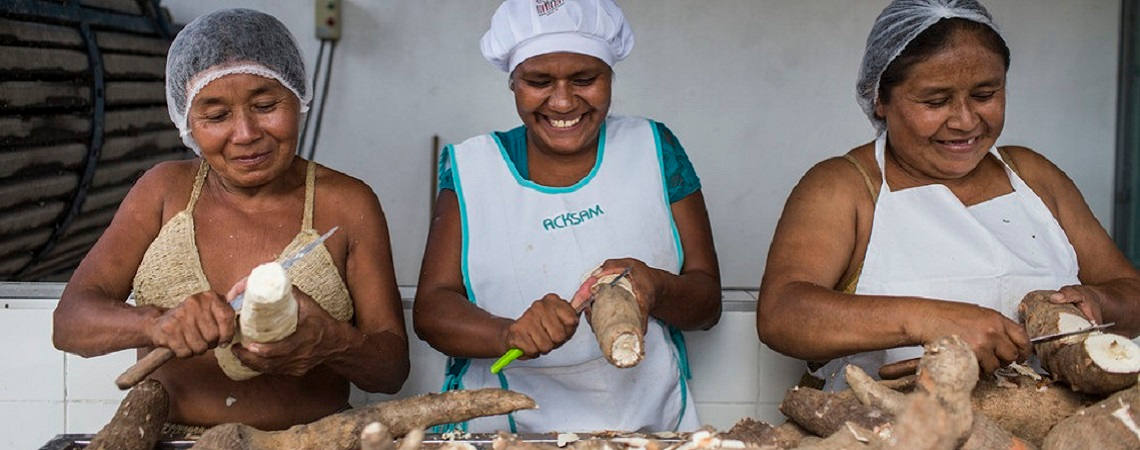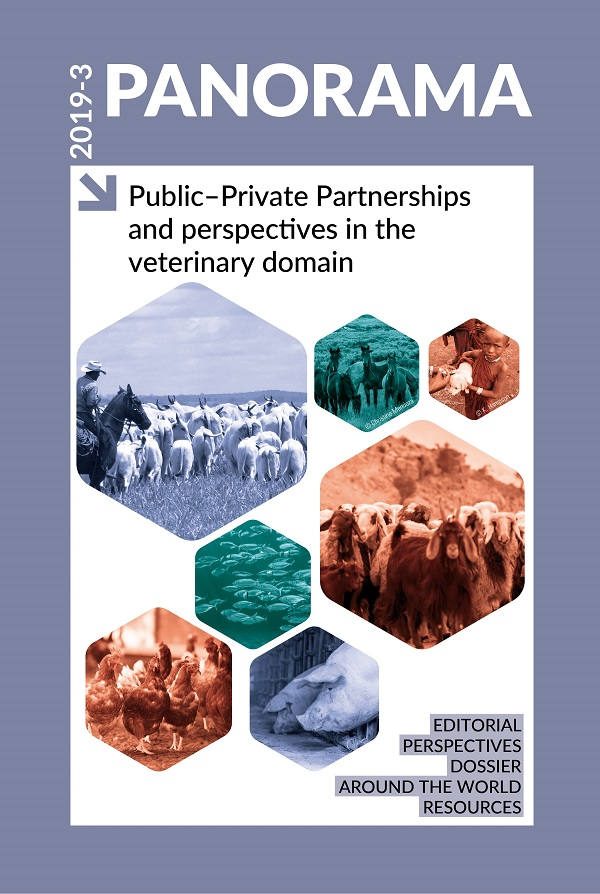Perspectives Posted on 2020-01-15 11:09:28
Public–private–producer partnerships (4Ps) in agricultural value chains
Sustainable inclusion of smallholders in agricultural value chains
Keywords
Authors
Luis Jiménez-McInnis, Office of Partnerships and Resource Mobilisation (PRM), International Fund for Agricultural Development (IFAD).
The designations and denominations employed and the presentation of the material in this article do not imply the expression of any opinion whatsoever on the part of the OIE concerning the legal status of any country, territory, city or area or of its authorities, or concerning the delimitation of its frontiers and boundaries.
The views expressed in this article are solely the responsibility of the author(s). The mention of specific companies or products of manufacturers, whether or not these have been patented, does not imply that these have been endorsed or recommended by the OIE in preference to others of a similar nature that are not mentioned.
Partnering with the private sector is not new to IFAD. Past and present IFAD-supported projects have generated considerable experience and many lessons have been learned. IFAD promotes the 4Ps as a more systematic way of doing business with the private sector through the projects it supports. This involves interacting with global stakeholders, partners and clients on IFAD’s unique approach to partnerships that enhance the well-being of small-scale producers.
The IFAD 4Ps model ensures that smallholder producers are recognised and established partners since they are explicitly considered an integral part of the public–private partnership (PPP) process. This is consistent with the approach recommended by the OIE in its PPP Handbook, but puts an extra emphasis on smallholder producers as an essential component of PPPs in many countries. Transparency, fairness and accountability are also very important, especially when it comes to recognising the tenure rights of local communities and the vital role of women, as well as the importance of environmental issues. Within this sphere, livestock play a key role. Investing in livestock means investing in the livelihoods of poor rural households. Livestock can provide food and nutrition security and, at the same time, strengthen the resilience of families facing economic challenges. A 4Ps approach could serve to protect animal health, boost productivity and link producers to profitable markets.
How organisations and agribusinesses can achieve better 4Ps

To harness greater domestic public investment, it is essential that the 4Ps model is adopted in a sustainable manner. If this model is used properly, local institutions, banks, equity investors and other value chain suppliers – through the 4Ps approach – will be attracted to invest more in the combination of financial instruments, public goods and contractual engagements with agribusinesses and small-scale producers.
http://dx.doi.org/10.20506/bull.2019.3.3043
References
- International Fund for Agricultural Development (IFAD) (2013). – IFAD and public-private partnerships: selected project experiences.
- International Fund for Agricultural Development (IFAD) (2015). – Sustainable inclusion of smallholders in agricultural value chains.
- Thorpe J. & Maestre M. (2015). – Brokering development: enabling factors for public-private-producer partnerships in agricultural value chains. International Fund for Agricultural Development (IFAD) & Institute of Development Studies (IDS).
- Camagni M., Kherallah M. & Baumgartner P. (2016). – How to do public-private-producer partnerships (4Ps) in agricultural value chains. International Fund for Agricultural Development (IFAD).












